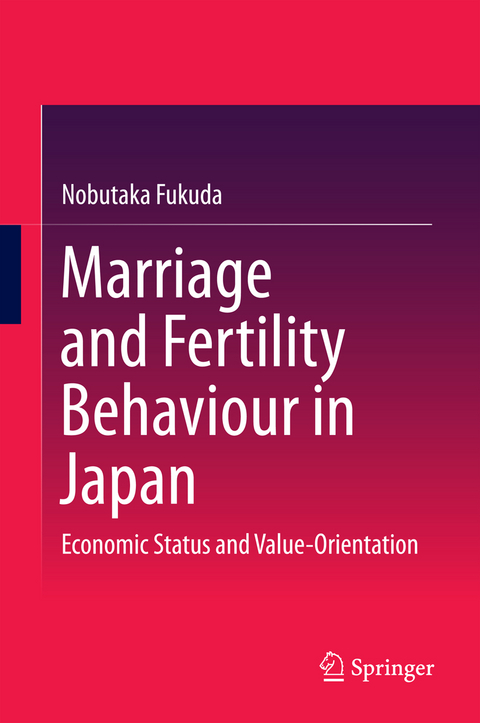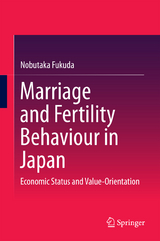Marriage and Fertility Behaviour in Japan
Springer Verlag, Singapore
978-981-10-0292-2 (ISBN)
The author first details the differences between ideational and economic approaches. He examines these two behavioural models from a viewpoint of rational choice theory, which he then follows with a discussion on the influence of institutional contexts on matrimony and childbirth. Next, the book considers salient features of Japanese marriage behaviour, including the relation between these patterns and changes in society and the influence of marriage on attitudes toward partnership and family relations. Coverage then goes on to explore the influence of ideational factors on fertility and analyse the impact of childbirth on couples' attitudes. The author also investigates attitudinal changes between generations in Japan. He provides a theoretical review on the relation between socio-economic development and value-orientation as well as looks at the difference in attitudes from a viewpoint of cohorts and periods. Overall, the book presents an authoritative, theoretical and empirical analysis using data from panel and repeated cross-sectional surveys. Throughout, the author clearly identifies the sources of his data as well as the methods used in his analysis.
Nobutaka Fukuda is a professor at Tohoku University, Japan, where he teaches Sociology and Social Statistics. He was a visiting researcher at the University of Oxford in 2000, the University of Chicago in 2012, and the University of California, Berkeley in 2014. After obtaining his BA in Economics and MA in Sociology of Education in Japan, he continued his research into Japanese Family at the University of Oxford. He received his doctorate from the University of Oxford, and writes many articles and books concerning Japanese family. He is one of the leading researchers on low fertility in Japan, and studies the relation between family formation and ideational change caused by socio-economic development. He is currently working on a comparative study of partnership, fertility, and intergenerational relations between Japan and other developed countries.
Chapter 1: Introduction.- Chapter 2: Economic and Ideational Theories of Marriage and Fertility Behaviour.- Chapter 3: Economic Change, Value Shift and Marriage Behaviour.- Chapter 4: Economic Change, Value Shift and Fertility Behaviour.- Chapter 5: Stability and Change in Value-Orientations.- Chapter 6: Conclusion.
| Erscheinungsdatum | 08.10.2016 |
|---|---|
| Zusatzinfo | 28 Illustrations, black and white; XIII, 183 p. 28 illus. |
| Verlagsort | Singapore |
| Sprache | englisch |
| Maße | 155 x 235 mm |
| Themenwelt | Geisteswissenschaften ► Psychologie ► Psychoanalyse / Tiefenpsychologie |
| Geisteswissenschaften ► Psychologie ► Sozialpsychologie | |
| Sozialwissenschaften ► Soziologie ► Allgemeine Soziologie | |
| Sozialwissenschaften ► Soziologie ► Empirische Sozialforschung | |
| Sozialwissenschaften ► Soziologie ► Mikrosoziologie | |
| Schlagworte | Family-friendly policy in Japan • Fertility issues in Japan • Japanese family formation • Japanese generations and gender survey • Marriage and fertility behaviour • National survey on family • Second Demographic Transition • Value orientation on family formation |
| ISBN-10 | 981-10-0292-4 / 9811002924 |
| ISBN-13 | 978-981-10-0292-2 / 9789811002922 |
| Zustand | Neuware |
| Informationen gemäß Produktsicherheitsverordnung (GPSR) | |
| Haben Sie eine Frage zum Produkt? |
aus dem Bereich




